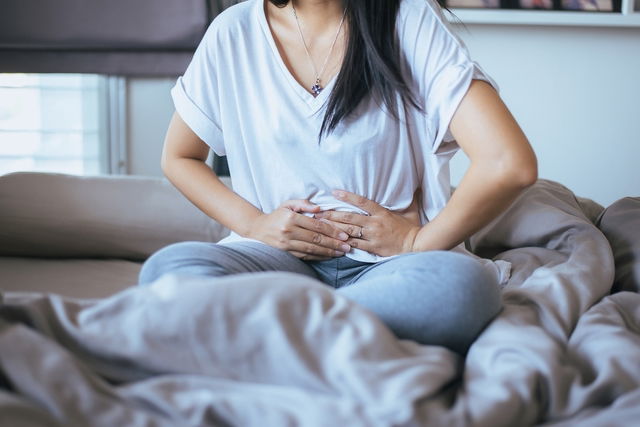Diverticulitis is a bowel condition characterized by inflammation and/or infection of the diverticula, which are small pouches in the walls of the intestines. These are especially noted in the lower part of the colon.
Diverticula are usually present in adults over the age of 40, but they seem to occur more frequently in those who have chronic constipation or consume a low-fiber diet. These conditions lead to dry and retained feces, which forms and diverticula that can become inflamed. Symptoms like nausea, vomiting, and stomach pain are signs of this condition.
Common symptoms of diverticulitis include nausea, vomiting and stomach pain. Diverticulitis should be diagnosed and monitored by a gastroenterologist to reduce the risk of serious complications such as intestinal perforation or bowel obstruction.

Symptoms of diverticulitis
In most cases, diverticulitis is asymptomatic and it is only identified through diagnostic imaging, like an abdominal CT scan. However, some people do report signs and symptoms that are not very specific, such as:
- Abdominal pain, especially in the lower left quadrant, which may be constant and persist for several days;
- Diarrhea or constipation;
- Sensitivity on the left side of the abdomen;
- Nausea and vomiting;
- Fever;
- Chills;
- Bloody stools
- Loss of appetite.
The intensity of the symptoms varies according to the severity of the inflammation. Mild inflammation, for example, will not result in any noticeable symptoms. Nonetheless, if you experience any of these symptoms, you should follow-up with your doctor for assessment. Diagnosis is usually confirmed through diagnostic tests, like abdominal ultrasound, CT scan or bloodwork.
Main causes of diverticulitis
The presence of diverticula in the lower part of the colon is called 'diverticulosis' and when those diverticula are inflamed the condition is called 'diverticulitis'. Diverticulitis often occurs due to decreased elasticity of the intestine muscles, which happens from natural aging. This causes small pieces of stool to remain within the pockets instead of flowing forward, which results in inflammation.
Diverticula can also become inflamed due to dry feces from low-fiber diets or chronic constipation. Dry feces increase pressure within the intestine, causing small pockets and leading to inflammation.
Pieces of feces that remain in the bowels increase risk for intestinal infection, which can also cause symptoms.
Treatment options
Diverticulitis treatment should be monitored by a gastroenterologist. The treatment approach will depend on the intensity of the symptoms and the underlying cause of the inflammation. The doctor may prescribe analgesic medication and/or anti-inflammatory medication to relieve symptoms, as well as antibiotics, like ciprofloxacin and metronidazole, to treat or prevent any infections.
The doctor may also recommend some dietary changes. The most important guideline during a diverticulitis flare-up is to adhere to a liquid diet fluids in the first three days. Solids should be introduced gradually to reduce any major increases of pressure within the intestines. As inflammation starts to ease and symptoms decrease, ensure your diet is rich in fiber to avoid future flare-ups. Great examples include fresh fruits, vegetables and whole grains. it's important to follow a fiber rich diet, such as fresh fruits, vegetables, or wholegrain cereals, in order to avoid the diverticula getting inflamed again. Read more about the recommended diet for diverticulitis.
In most cases, diverticulitis can be conservatively managed at home, however, more complicated cases require IV medication and assessment. Some patients may even require surgery.
Possible complications
When diverticulitis is left untreated or when treatment is not adhered to appropriately, some serious complications may appear:
- Bleeding, which can be intense and noted in the stool.
- Formation of fistulas, which are connections of the intestine with other organs. This increases the risk for infection.
- Intestinal perforation, which is a serious complication that causes intense inflammation in the abdomen.
- Bowel obstruction, in which the inflammation stops the the flow of stool through the intestine. Common symptoms include abdominal swelling, cramps, and vomiting.
To prevent complications, it's important to follow treatment as directed by your doctor and to seek medical attention if you experience symptoms.
How to prevent
To prevent the formation of diverticula in the large intestine, or prevent flare-ups, it is important to maintain a high-fiber diet to stimulate optimal functioning and cleaning of the intestine. This prevents intestinal walls from becoming weakened and new folds from forming.
For optimal bowel function, it is also very important to drink plenty of fluids throughout the day, on average 2 liters of water, in addition to eating slowly and chewing well before swallowing.
